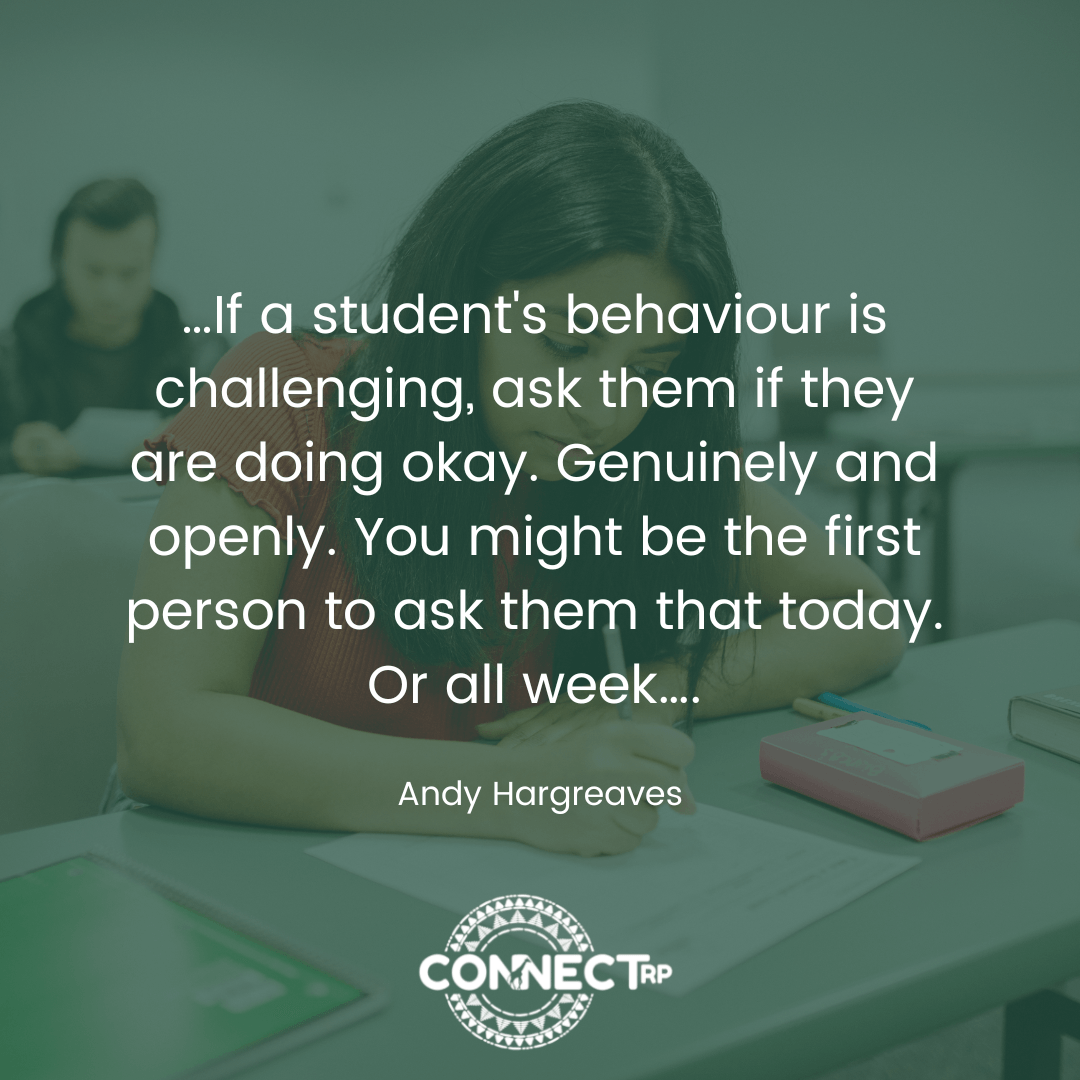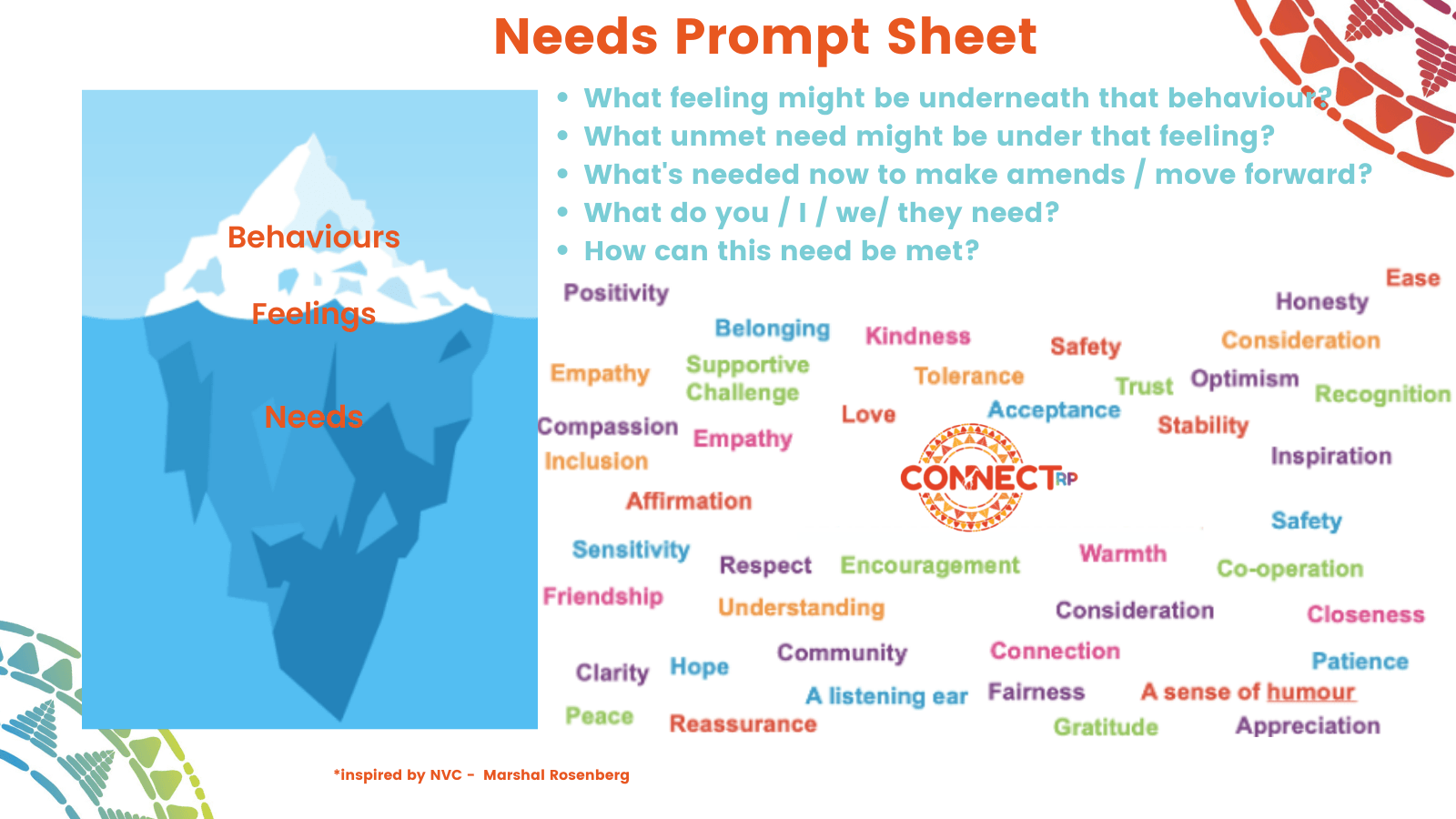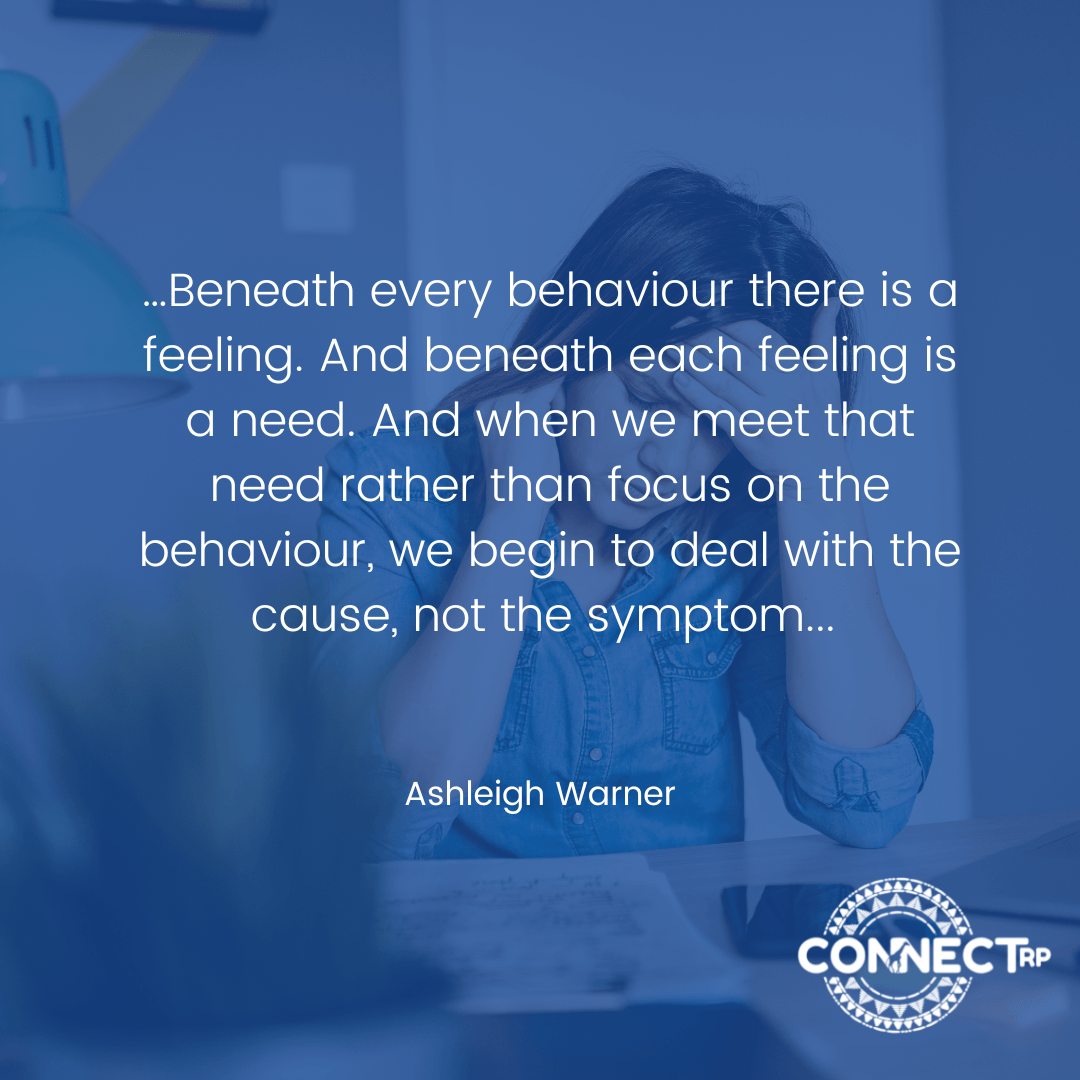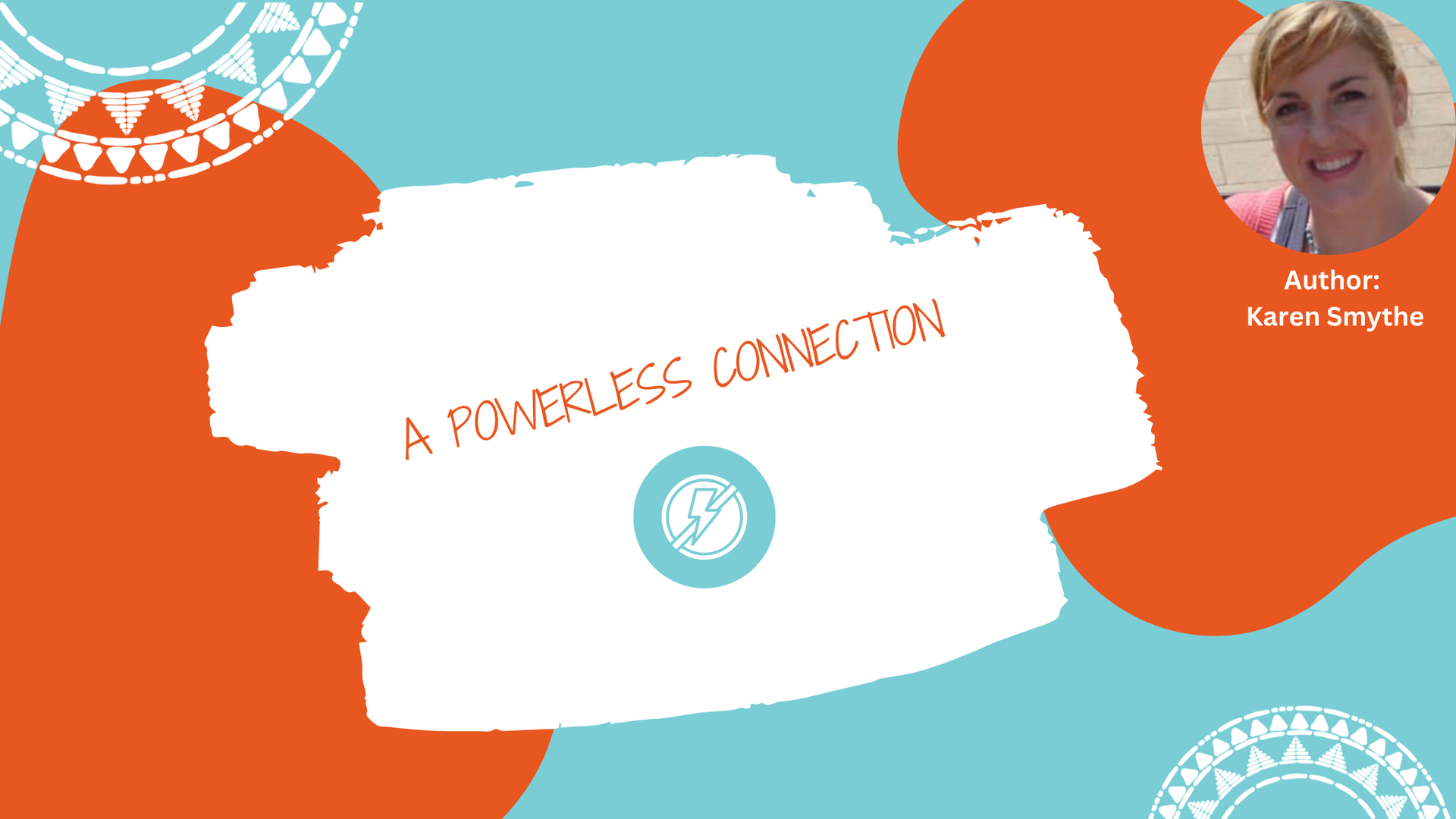All Behaviour is Communication, So What's Needed Now?
I love this reminder from Andy Hargreaves

It brings to mind an incident last week when I was being very grumpy and short with my sister, we're very close and of course we can argue sometimes. She says she's the only one that really knows how truly 'un-restorative' I can be :-)!! She'd also probably agree that she can be a little confrontational at times and might often have reacted badly to my clipped tone which would have escalated the conflict. As human beings our emotions are so contagious! But she didn't react that way at all that day, she just genuinely turned to look at me, put her hand on my arm and in a concerned tone asked 'Shelly, are you OK?'. When she responded like this, I could suddenly feel the 'ugly-trying-not-to-cry-face' coming on :-)! It softened everything, I shed a few tears and she gave me a hug. She made it an opportunity for connection through her response. Her genuine concern melted my armoured charge, and I could share, even realise myself, what was really going on underneath the anger mask. I wasn't OK at all.
This is why a restorative approach and lens is so nurturing for relationships and also for awareness, reflection and the addressing of unmet needs. Look at the behaviour feeling-needs iceberg.

Download PDF version of the Needs Prompt Sheet here.
I was being impatient and being short in my reply but it was nothing to do with her or what she was asking at all. I always say to my nieces and nephews that when our hearts are full of love and we feel good, we pass it on; and when our hearts are feeling prickly and heavy we can also pass that on - true when you are 7, 17 or 70! I was feeling angry at something else that was going on in my life that week and underneath that anger was a deep sadness, a disappointment, and an old weariness. What I needed at that time was compassion, understanding and reassurance that everything will be okay, that 'this too shall pass'. Luckily, my lovely sis could recognise that my behaviour was communicating something beyond that I was a 'moany you-know-what' that day, all behaviour is communication!
Have a think about your students, your colleagues or even perhaps a loved one at home that may have been engaging with destructive behaviour, that we can so often take personally. I wonder what feelings may be underneath their actions? What might be going on inside? What is the unmet need and therefore how should we respond?

In our work, we can't always meet all our students' needs all of the time, but this relational lens allows us to move away from blame and towards solutions; whatever the capacity we may or may not have, it allows us to maintain our empathic bond. This is key to relationships which are the heart of RP.




